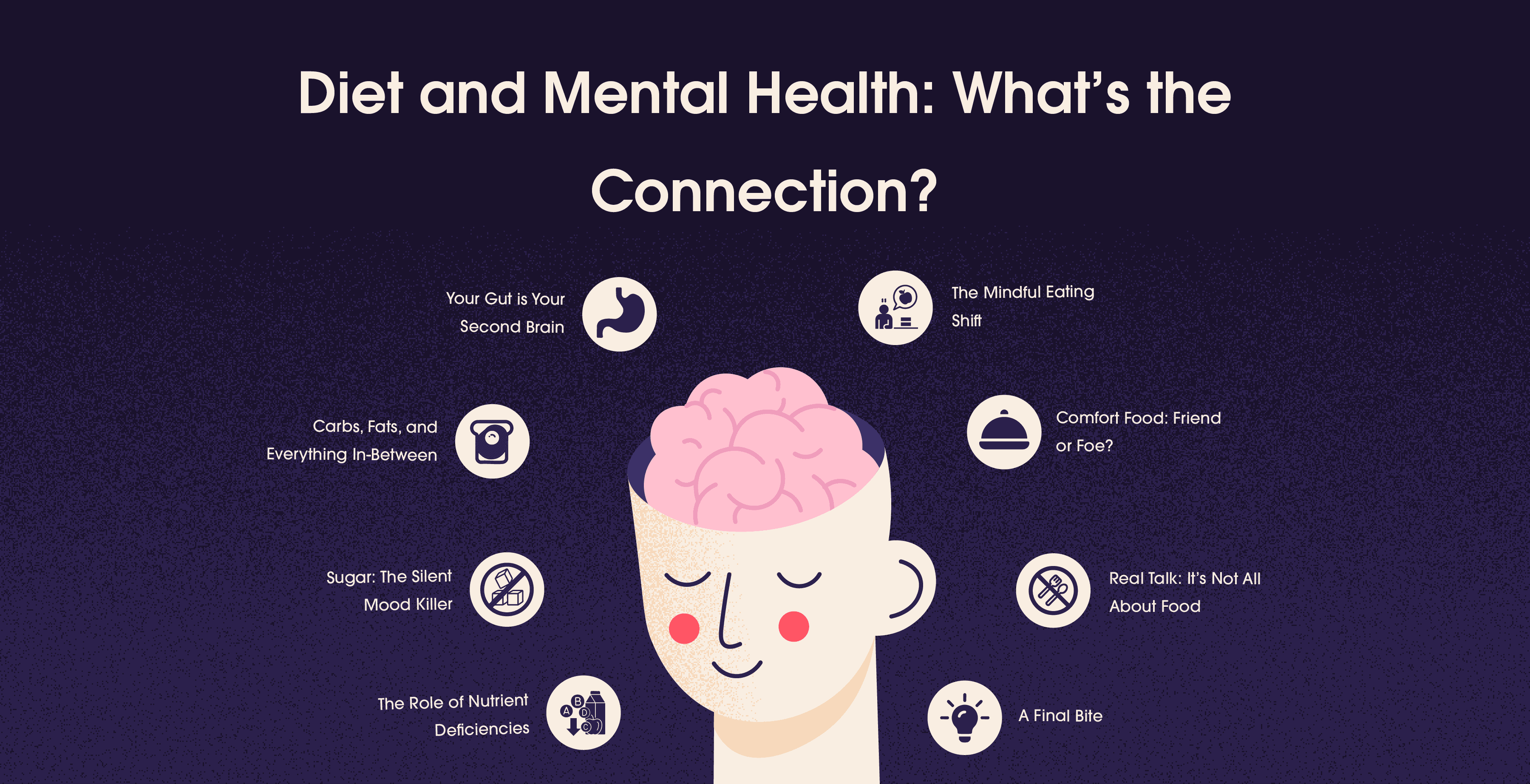How Does a CGM Help People with PCOS
Oct 21, 2024
Sayfali Rawlani
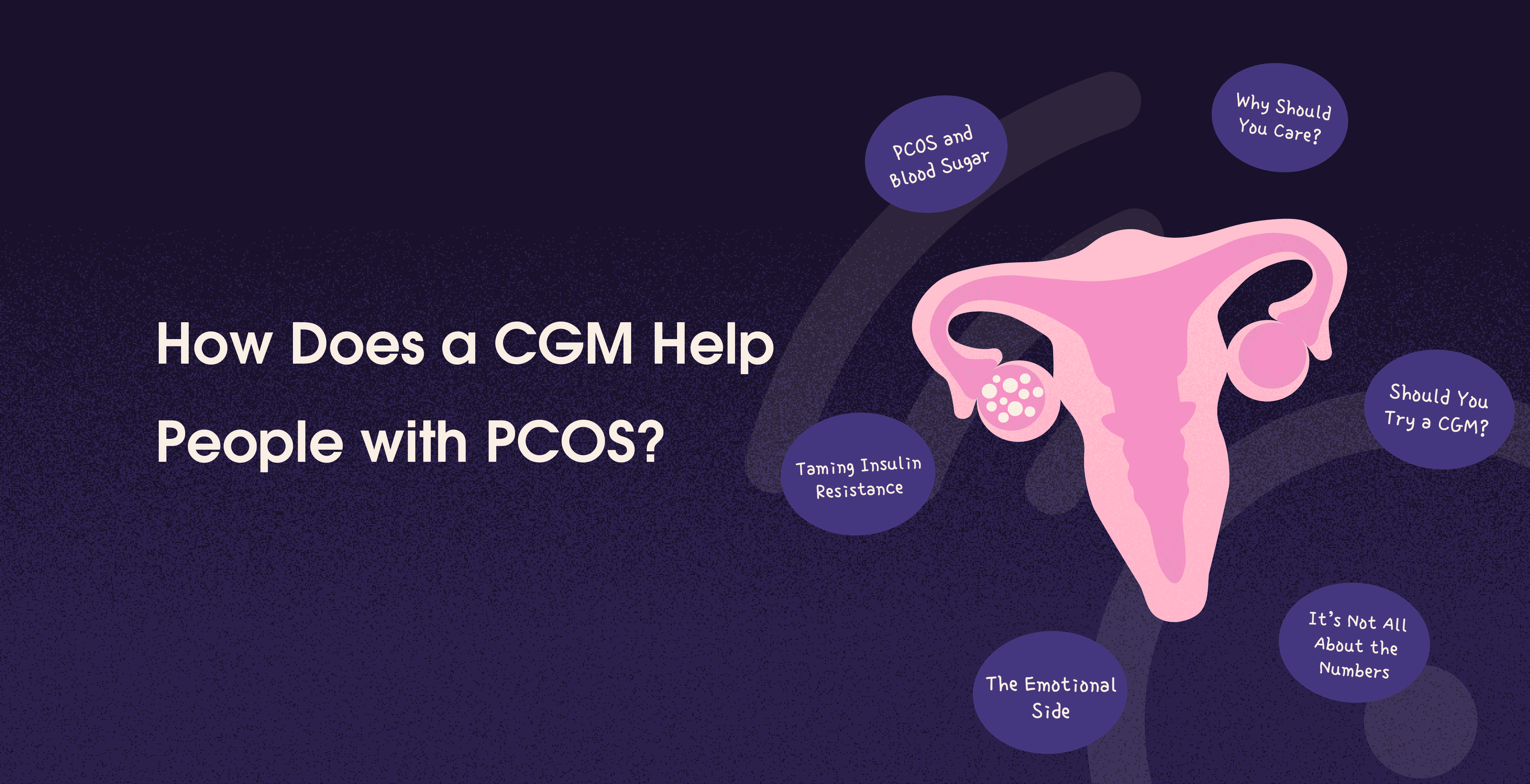


Table Of Contents
So, you’ve got PCOS, huh? Yeah, it’s not the easiest thing to deal with. One minute you’re fine, the next you’re fighting off cravings, exhausted from out-of-nowhere fatigue, or wondering why your body seems to have a mind of its own. It’s frustrating—believe me, I get it. But here’s the thing: the connection between PCOS and blood sugar is way bigger than most of us realize. And that’s where a CGM—short for Continuous Glucose Monitor—can help you take the wheel. Trust me, this little gadget might just become your new secret weapon.
Highlights
Insulin resistance causes blood sugar spikes and crashes, leading to symptoms like fatigue, cravings, and weight issues.
A Continuous Glucose Monitor (CGM) tracks blood sugar levels continuously and provides real-time data on how your body responds to food.
CGM helps identify which foods or habits trigger blood sugar spikes and crashes, offering insight into symptom management.
Track how different meals affect blood sugar, making it easier to create a diet that supports PCOS management.
Monitoring and managing blood sugar with a CGM can improve insulin sensitivity over time.
A CGM empowers users by providing data, giving them control over their health.
The goal is to understand patterns rather than obsessing over perfect blood sugar numbers.
Ideal for those who like data tracking and are focused on health improvements. Consult with a doctor to see if it’s the right fit.
PCOS and Blood Sugar
First, let’s talk about what’s really going on under the hood. With PCOS, your body can struggle with insulin resistance, which is a fancy way of saying it doesn’t process sugar the way it should. This means your blood sugar can spike and drop like a seesaw, leading to all kinds of annoying symptoms. You know, those random energy crashes, intense hunger, and that sluggish, heavy feeling? Yeah, that. And while insulin resistance might not seem like a big deal at first, it can mess with your weight, mood, and, of course, your overall health.
how does a CGM come into play?
Picture this: a tiny device that sticks to your skin and tracks your blood sugar levels 24/7, without you having to poke your fingers all day long. Sounds like magic, right? The CGM sends real-time data straight to your phone, so you can literally watch how your blood sugar behaves throughout the day. Eat a cookie? You’ll know what that did. Skip breakfast? Boom, there’s the drop. It’s like having a backstage pass to what’s really going on inside your body.
Why Should You Care?
Patterns, Patterns, Patterns
A lot of the time, we don’t realize what’s triggering those PCOS symptoms. You might feel wiped out after a big meal or jittery when you skip one, but connecting the dots can be tough. A CGM makes it crystal clear. It helps you see the trends, like, “Hey, every time I eat a bagel, my blood sugar skyrockets!” Or, “Wow, walking after dinner actually keeps me feeling steady.” It’s like solving a puzzle where the pieces suddenly fit.
Diet in Real Time
Let’s be honest: figuring out what to eat when you have PCOS can be a nightmare. One minute you’re reading about keto, then it’s intermittent fasting, and the next thing you know, someone’s telling you to go gluten-free. Exhausting, right? With a CGM, you don’t have to guess. You can see how your body responds to food in real-time. Did that bowl of pasta send your blood sugar through the roof? Did your morning smoothie keep things nice and steady? Over time, you can build a list of “go-to” meals that work for you.
Taming Insulin Resistance
One of the hardest parts of PCOS is that pesky insulin resistance. It’s what makes you more prone to gaining weight or feeling sluggish after carbs. But here’s the cool thing: once you start keeping your blood sugar in check, your insulin sensitivity can improve. And that’s the goal, right? Things like swapping sugary snacks for healthier ones, going for a quick walk after meals, or even tweaking portion sizes can make a huge difference. And your CGM will be there, giving you a thumbs-up when something’s working.
The Emotional Side
Now, let’s get real for a second—PCOS isn’t just a physical battle. It’s emotional, too. The constant feeling that your body’s playing tricks on you? Not fun. That’s where having a CGM can be a bit of a lifeline. When you’ve got something tracking your blood sugar in real-time, you start to feel like you’ve got a handle on things. You’re not just stumbling in the dark anymore—you’ve got data. And with data, you can make informed choices.
It’s empowering, honestly. You start noticing patterns and making small changes that stick. Maybe you swap out that afternoon snack that always makes you crash, or you start adding more fiber to your meals and notice your energy levels balancing out. Over time, it feels like those little wins start adding up.
It’s Not All About the Numbers
Now, here’s the thing. It’s easy to get obsessed with the numbers. Trust me, I’ve been there. But it’s important to remember that your blood sugar is going to fluctuate—that’s normal. Stress, hormones, and even a bad night’s sleep can mess with your levels. The goal isn’t to have perfect numbers all the time (because, spoiler: that’s impossible). It’s about understanding what’s happening and using that info to help your body run a little smoother.
Should You Try a CGM?
Alright, so you might be thinking, “Is a CGM for me?” Well, it depends. Some people love tracking data and feeling in control, while others might find it overwhelming to see their blood sugar constantly changing. If you’re the kind of person who likes experimenting with your health, tweaking your habits, and seeing results, you’ll probably find a CGM super helpful. If you’d rather not get too wrapped up in the numbers, maybe it’s not your vibe—and that’s totally cool too.
If you’re curious, chat with your doctor about whether a CGM could be a good fit. They can help guide you on how to use it without driving yourself up the wall. Because, let’s be real, nobody needs more stress in their life, right?
Final Thoughts
Dealing with PCOS is a journey, no doubt about it. And while there’s no magic fix, having a tool like a CGM can help you get a handle on one big piece of the puzzle: your blood sugar. It’s not a silver bullet, but it can give you a peek behind the curtain and help you make choices that actually support your body.
At the end of the day, it’s all about finding what works for you. Some people swear by their CGM, saying it helped them finally crack the code on their diet and energy levels. Others might prefer a more laid-back approach. But here’s the thing—whatever path you choose, you’ve got options. And in the world of PCOS, that’s something to be thankful for.
References
So, you’ve got PCOS, huh? Yeah, it’s not the easiest thing to deal with. One minute you’re fine, the next you’re fighting off cravings, exhausted from out-of-nowhere fatigue, or wondering why your body seems to have a mind of its own. It’s frustrating—believe me, I get it. But here’s the thing: the connection between PCOS and blood sugar is way bigger than most of us realize. And that’s where a CGM—short for Continuous Glucose Monitor—can help you take the wheel. Trust me, this little gadget might just become your new secret weapon.
Highlights
Insulin resistance causes blood sugar spikes and crashes, leading to symptoms like fatigue, cravings, and weight issues.
A Continuous Glucose Monitor (CGM) tracks blood sugar levels continuously and provides real-time data on how your body responds to food.
CGM helps identify which foods or habits trigger blood sugar spikes and crashes, offering insight into symptom management.
Track how different meals affect blood sugar, making it easier to create a diet that supports PCOS management.
Monitoring and managing blood sugar with a CGM can improve insulin sensitivity over time.
A CGM empowers users by providing data, giving them control over their health.
The goal is to understand patterns rather than obsessing over perfect blood sugar numbers.
Ideal for those who like data tracking and are focused on health improvements. Consult with a doctor to see if it’s the right fit.
PCOS and Blood Sugar
First, let’s talk about what’s really going on under the hood. With PCOS, your body can struggle with insulin resistance, which is a fancy way of saying it doesn’t process sugar the way it should. This means your blood sugar can spike and drop like a seesaw, leading to all kinds of annoying symptoms. You know, those random energy crashes, intense hunger, and that sluggish, heavy feeling? Yeah, that. And while insulin resistance might not seem like a big deal at first, it can mess with your weight, mood, and, of course, your overall health.
how does a CGM come into play?
Picture this: a tiny device that sticks to your skin and tracks your blood sugar levels 24/7, without you having to poke your fingers all day long. Sounds like magic, right? The CGM sends real-time data straight to your phone, so you can literally watch how your blood sugar behaves throughout the day. Eat a cookie? You’ll know what that did. Skip breakfast? Boom, there’s the drop. It’s like having a backstage pass to what’s really going on inside your body.
Why Should You Care?
Patterns, Patterns, Patterns
A lot of the time, we don’t realize what’s triggering those PCOS symptoms. You might feel wiped out after a big meal or jittery when you skip one, but connecting the dots can be tough. A CGM makes it crystal clear. It helps you see the trends, like, “Hey, every time I eat a bagel, my blood sugar skyrockets!” Or, “Wow, walking after dinner actually keeps me feeling steady.” It’s like solving a puzzle where the pieces suddenly fit.
Diet in Real Time
Let’s be honest: figuring out what to eat when you have PCOS can be a nightmare. One minute you’re reading about keto, then it’s intermittent fasting, and the next thing you know, someone’s telling you to go gluten-free. Exhausting, right? With a CGM, you don’t have to guess. You can see how your body responds to food in real-time. Did that bowl of pasta send your blood sugar through the roof? Did your morning smoothie keep things nice and steady? Over time, you can build a list of “go-to” meals that work for you.
Taming Insulin Resistance
One of the hardest parts of PCOS is that pesky insulin resistance. It’s what makes you more prone to gaining weight or feeling sluggish after carbs. But here’s the cool thing: once you start keeping your blood sugar in check, your insulin sensitivity can improve. And that’s the goal, right? Things like swapping sugary snacks for healthier ones, going for a quick walk after meals, or even tweaking portion sizes can make a huge difference. And your CGM will be there, giving you a thumbs-up when something’s working.
The Emotional Side
Now, let’s get real for a second—PCOS isn’t just a physical battle. It’s emotional, too. The constant feeling that your body’s playing tricks on you? Not fun. That’s where having a CGM can be a bit of a lifeline. When you’ve got something tracking your blood sugar in real-time, you start to feel like you’ve got a handle on things. You’re not just stumbling in the dark anymore—you’ve got data. And with data, you can make informed choices.
It’s empowering, honestly. You start noticing patterns and making small changes that stick. Maybe you swap out that afternoon snack that always makes you crash, or you start adding more fiber to your meals and notice your energy levels balancing out. Over time, it feels like those little wins start adding up.
It’s Not All About the Numbers
Now, here’s the thing. It’s easy to get obsessed with the numbers. Trust me, I’ve been there. But it’s important to remember that your blood sugar is going to fluctuate—that’s normal. Stress, hormones, and even a bad night’s sleep can mess with your levels. The goal isn’t to have perfect numbers all the time (because, spoiler: that’s impossible). It’s about understanding what’s happening and using that info to help your body run a little smoother.
Should You Try a CGM?
Alright, so you might be thinking, “Is a CGM for me?” Well, it depends. Some people love tracking data and feeling in control, while others might find it overwhelming to see their blood sugar constantly changing. If you’re the kind of person who likes experimenting with your health, tweaking your habits, and seeing results, you’ll probably find a CGM super helpful. If you’d rather not get too wrapped up in the numbers, maybe it’s not your vibe—and that’s totally cool too.
If you’re curious, chat with your doctor about whether a CGM could be a good fit. They can help guide you on how to use it without driving yourself up the wall. Because, let’s be real, nobody needs more stress in their life, right?
Final Thoughts
Dealing with PCOS is a journey, no doubt about it. And while there’s no magic fix, having a tool like a CGM can help you get a handle on one big piece of the puzzle: your blood sugar. It’s not a silver bullet, but it can give you a peek behind the curtain and help you make choices that actually support your body.
At the end of the day, it’s all about finding what works for you. Some people swear by their CGM, saying it helped them finally crack the code on their diet and energy levels. Others might prefer a more laid-back approach. But here’s the thing—whatever path you choose, you’ve got options. And in the world of PCOS, that’s something to be thankful for.
References
Table Of Contents
Table Of Contents
Table Of Contents
Read More
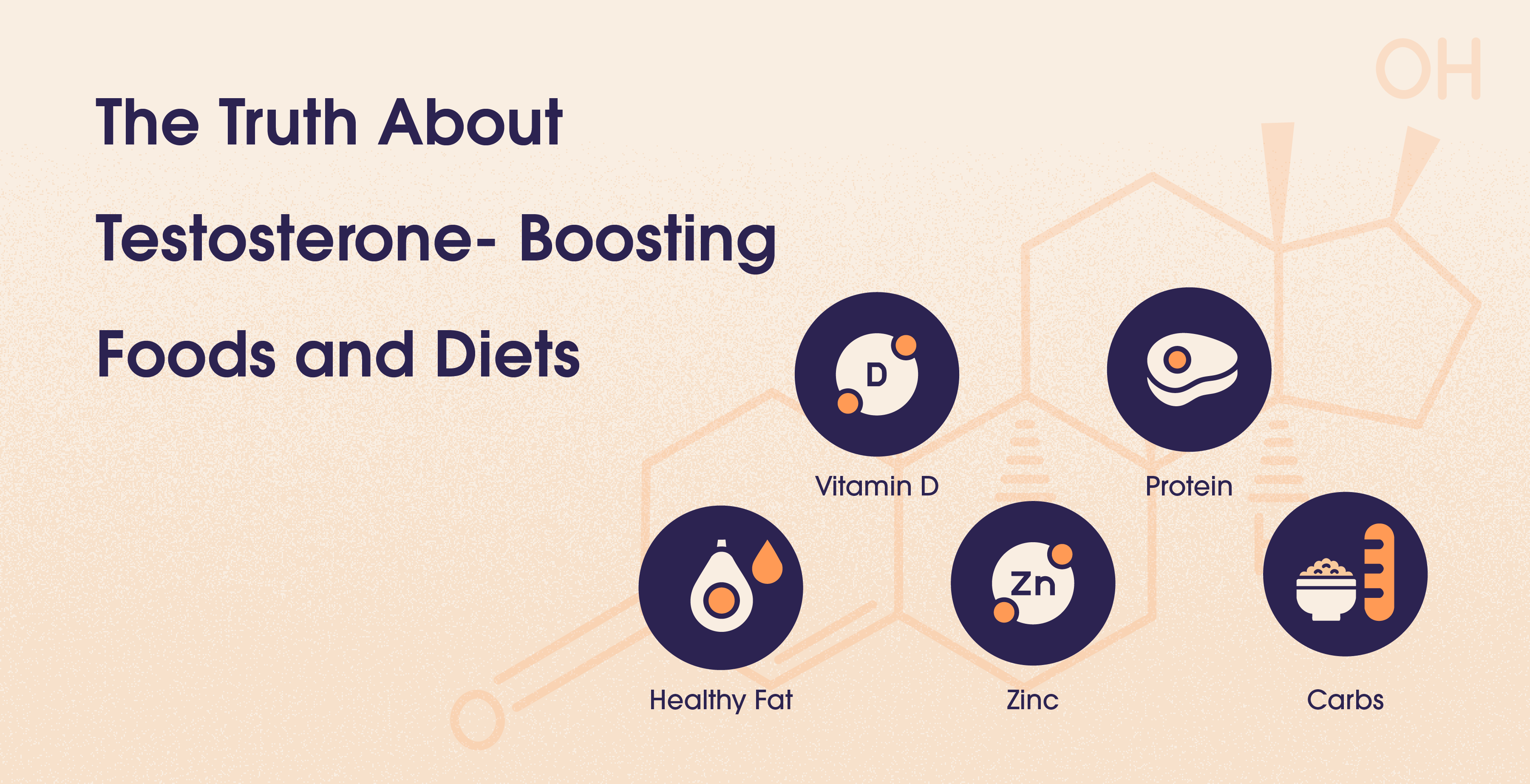

Mar 13, 2025
Sayfali Rawlani
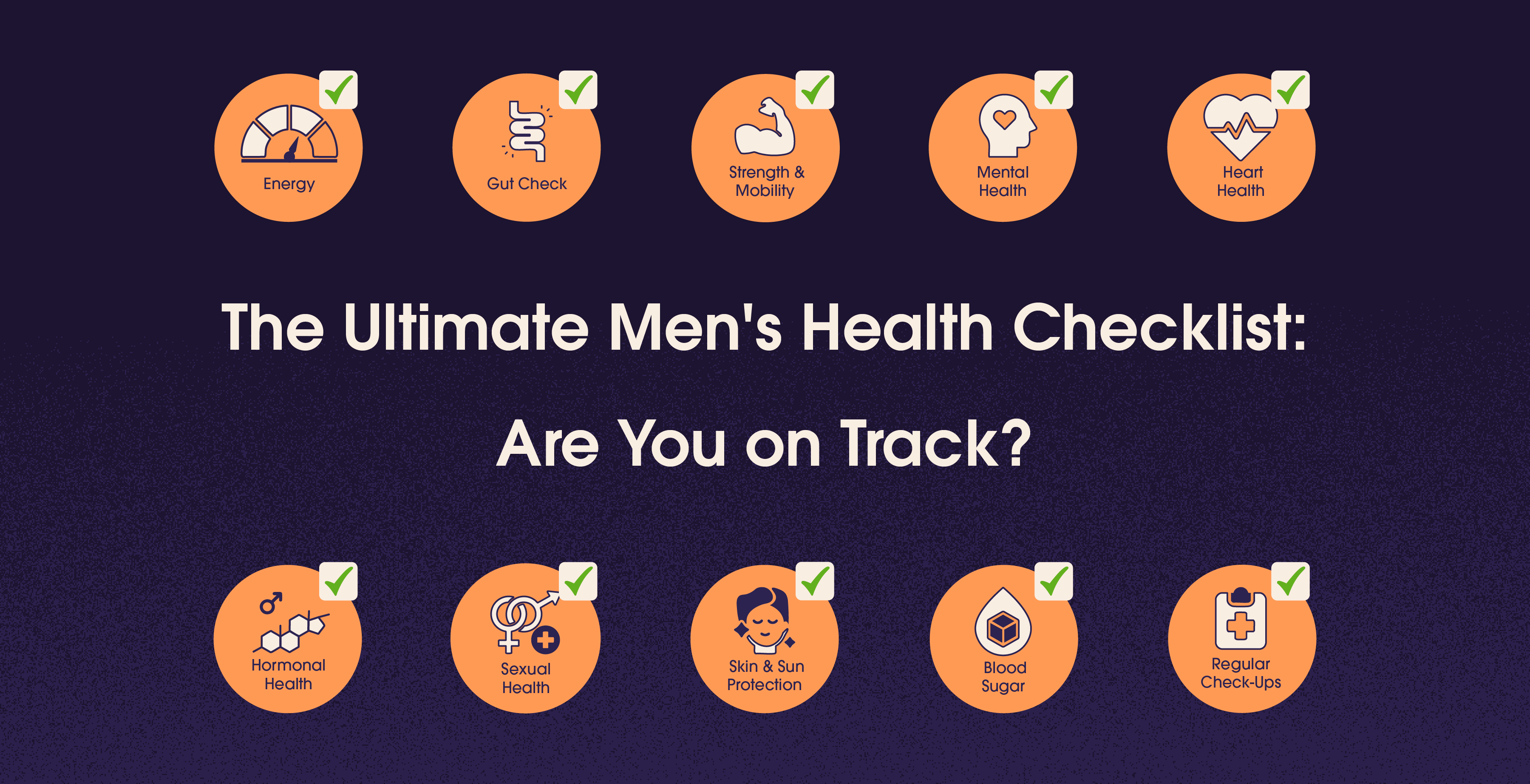

Feb 25, 2025
Sayfali Rawlani
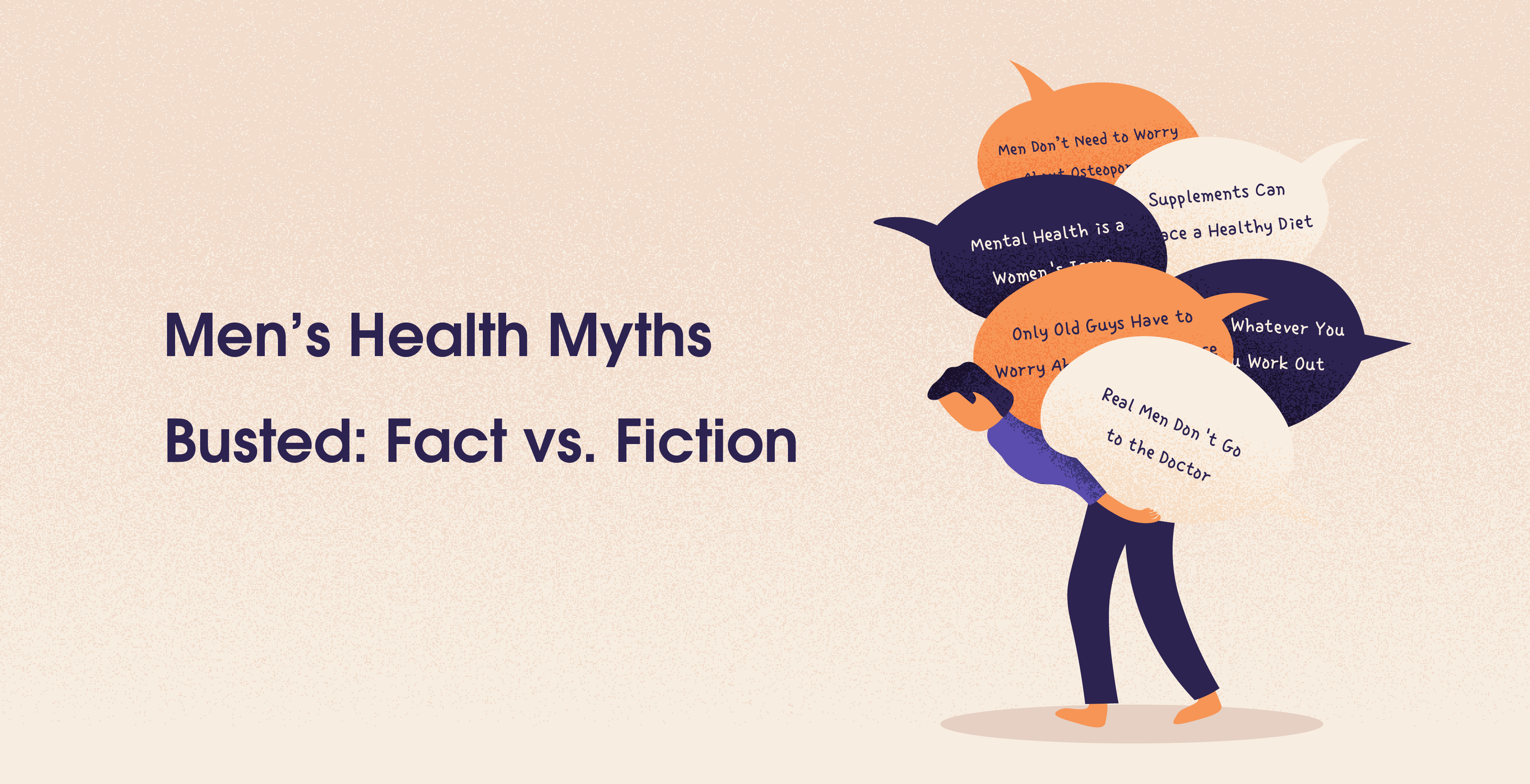

Feb 19, 2025
Sayfali Rawlani



Company
Copyright © 2025 trst health. All right reserved.

